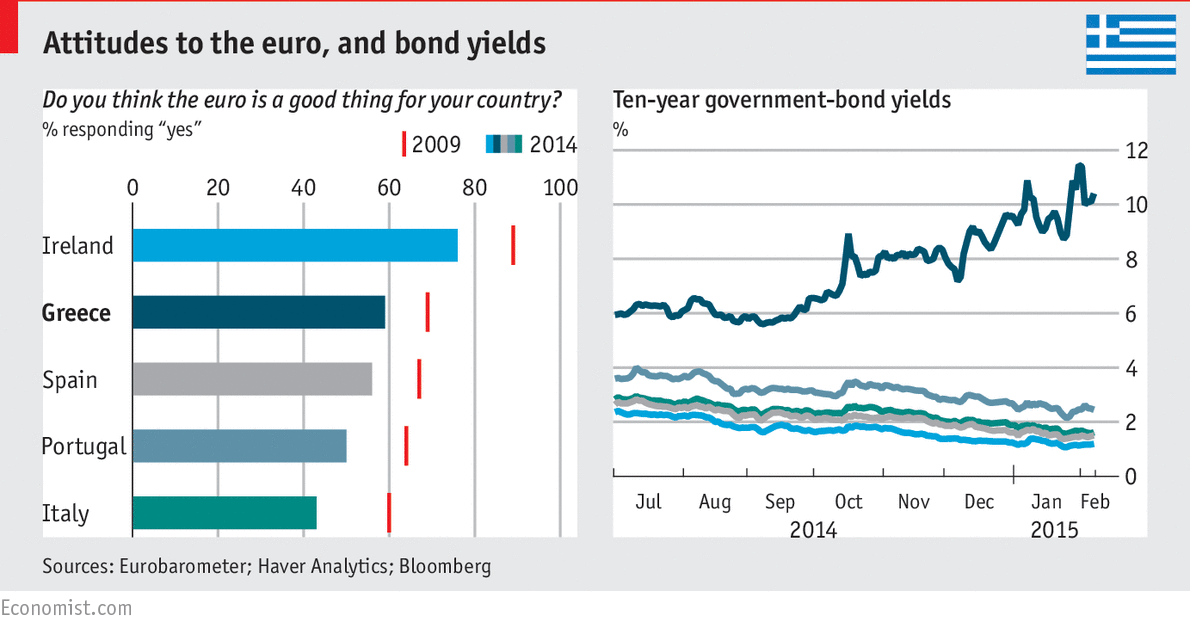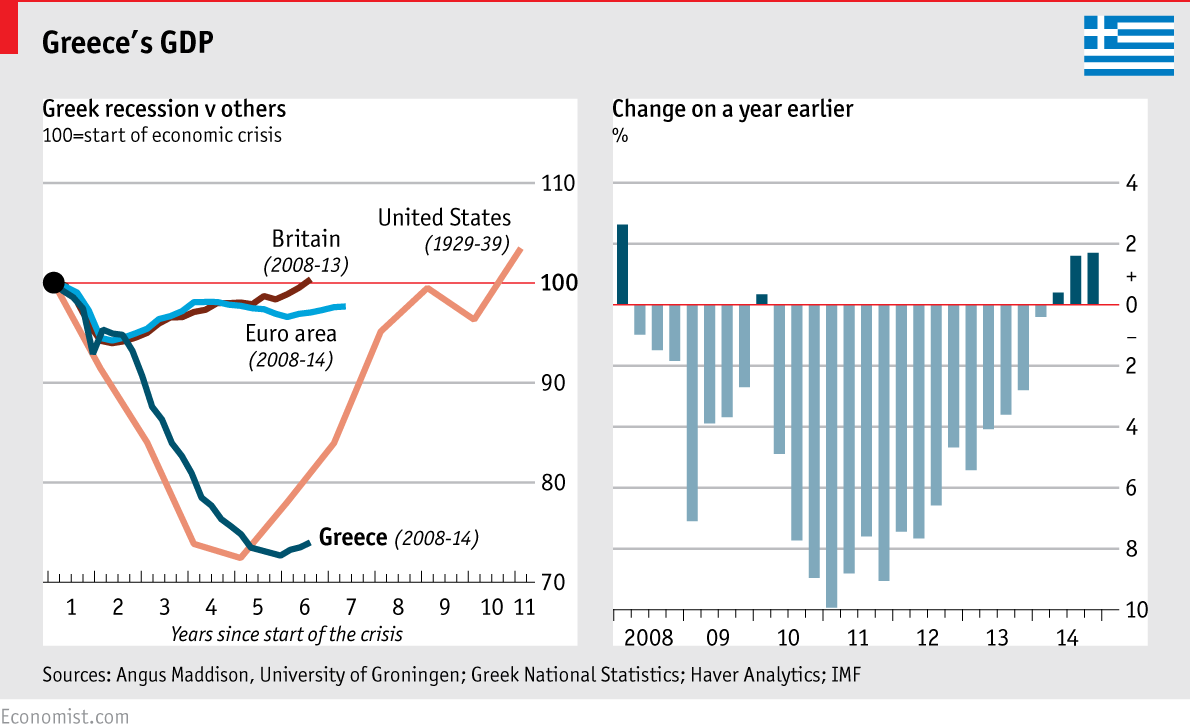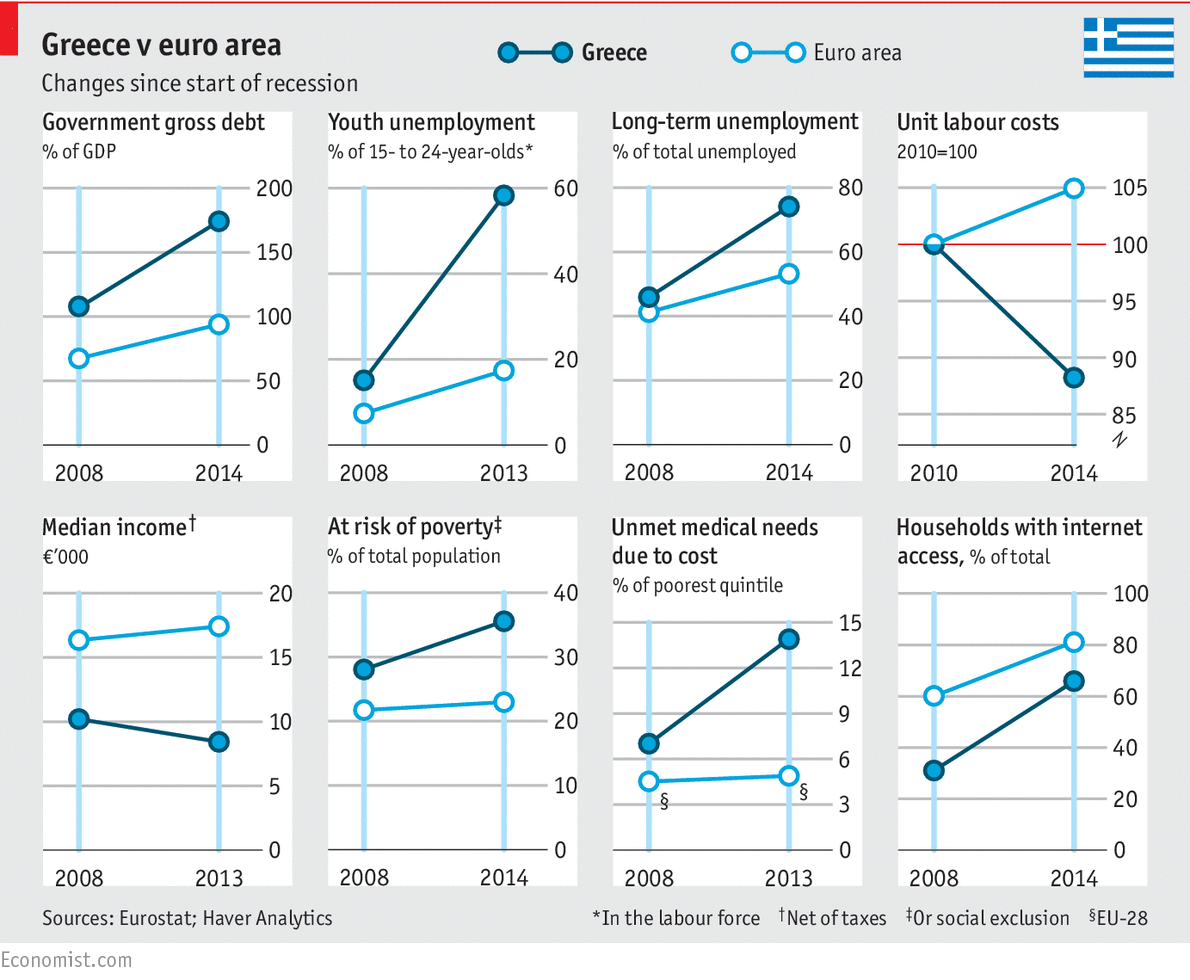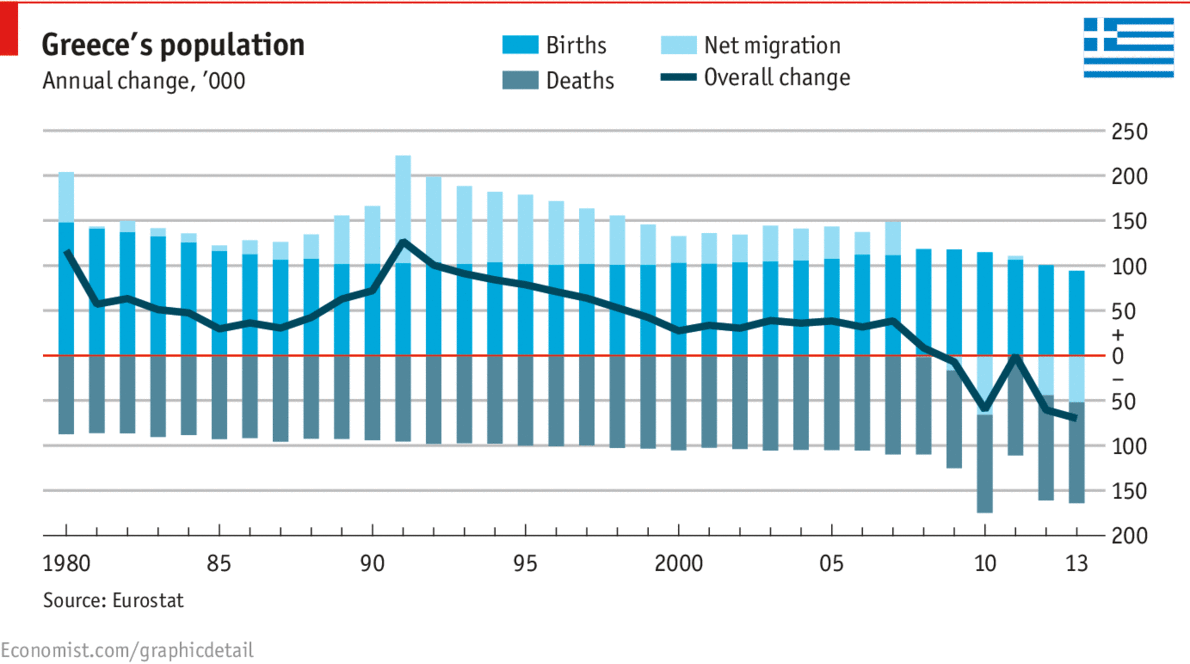Crown wrote:BabelHuber wrote:Greece created wealth by overspending for fucking decades! Consequently, they went bancrupt. They were bailed out by the EU, but then failed to put the necessary reforms into place, which massively compounded their problems.
A lie that has been dispelled multiple times in this thread, you embarras yourself and continue to lose (whatever shred) of credibility you have left.
http://www.heritage.org/index/country/greece
Greece’s economic freedom score is 54.0, making its economy the 130th freest in the 2015 Index. Its score has declined by 1.7 points since last year due to a substantial deterioration in the control of government spending and smaller declines in business freedom, labor freedom, and fiscal freedom. Greece is ranked 40th out of 43 countries in the Europe region, and its overall score is below the world and regional averages.
The rule of law remains problematic, with property rights weakly enforced, tax evasion on the rise, and corruption pervasive. Despite efforts to create a more business-friendly regulatory environment, the labor market remains rigid and slow to adjust to market realities.
The overall pace of regulatory reform lags behind other countries. With no minimum capital required, launching a business takes five procedures and 13 days. However, completing licensing requirements still takes about four months on average. Despite reform efforts, the labor market remains rigid and stagnant. Monetary stability is weak, and Greece is receiving substantial subsidies from the European Union.
EU members have a 1.0 percent average tariff rate. Although some non-tariff barriers exist, the EU is relatively open to external trade. Greece maintains additional barriers to the provision of some professional services. Foreign investment in some sectors is capped.
This is not bad for a liar without credibility, I'd say.

BabelHuber wrote:Bullshit. It depends on
what you manufacture and
how you do it. Otherwise Germany, Austria, the Netherlands, Slovakia, Lithuania etc. all would face the same problem. Or do these countries manage the 'almost' impossible, while Greece has no chance to do so?
Crown wrote:*cough*Australia*cough*
Come visit Australia, the famous Euro Zone member!
Crown wrote:Patently untrue; you're treating this as an either/or scenario. The New Deal shows us that you can introduce structural reforms while increasing spending.

I try it for a last time: The USA of the 19030ies is a prime example where Keynesian concepts work, while today's Greece is a prime example of an economy where these concepts will fail:
The USA back then was a ressource-rich country with the biggest industry in the world. After 1929, its industry was heaviliy under-utilized. Also, it can be modelled as closed economy without distorting the results too much.
So by overspending, Roosevelt created a virtous cycle:
1.) Lower unemployment ==> more demand for food/ consumer goods/ apartments etc.
2.) More demand for food/ consumer goods/ apartments etc. ==> Agricultural and industry production raises, more houses are built
3.) Agricultural and industry production raises, more houses are built ==> lower unemployment
4.) Lower unemployment ==> go back to 1.)
After a few iterations, the country is growing again. Hence tax income is on the rise, and this money can be used to pay back the loans which were needed for the overspending. In the next recession, you can repeat this.
Overspending in Greece in 2015:
1.) Lower unemployment ==> more demand for food/ consumer goods/ apartments etc.
2.) More demand for food/ consumer goods/ apartments etc. ==> More houses are built, but consumer goods are imported, food is partly imported
3.) More houses are built, but consumer goods are imported, food is partly imported ==> Go back to 1.)
This creates a bubble - the GDP will raise of course, but it cannot create sustainable growth because the country lacks the necessary industrial debth. As soon as you end overspending, a recession occurs.
Crown wrote:What do you do when you have 25% unemployment? Do you savagely cut all spending?
Unfortunately I don't see a way of fixing this in the short term. But you can fix this long-term. You'll have some positive effects after a few years, but not immediately.
What you can do:
- Attract investors to lower unemployment. For this you need a detailled concept: Which skills do my unemployed have? Do I want to compete mainly with Romania, Poland or Germany? In what areas do I want to have investors? Etcetc.
- Strengthen the areas where you are already strong. For Greece, this mainly means international tourism and agriculture
- When you invest, don't invest to create a bubble, but to become more competitive in the long run:
-- Offer vocational training for your unemployed, so they have more chances to get a new job (this has to be in line with the investments you want to have)
-- Improve schools/ universities. Support universities, so start-ups are created.
-- In general, improve in areas where you are weak to become more competitive: Do you have broadband internet in all areas? Are your streets and railroads up to support new factories at all? Etcetc.
This won't solve your problems within 6 months or so, but it will solve them long-term.
Ladies and gentlemen, I can envision the day when the brains of brilliant men can be kept alive in the bodies of dumb people.





